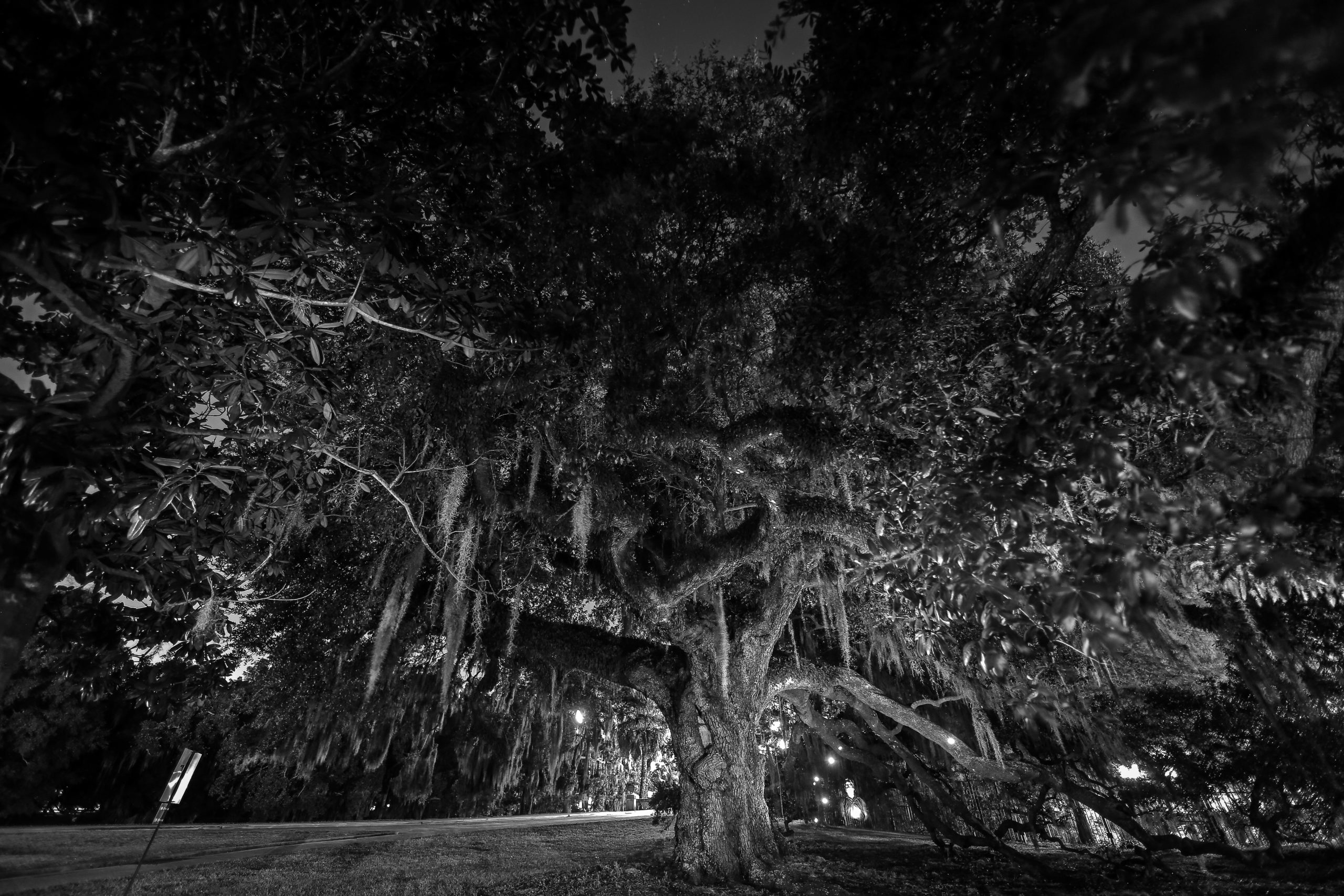Hast thou been affronted? Did some rogue at the ball disparage the size of your holdings or seek a scandalous courtship with thine betrothed? Seeketh thou satisfaction for a scurrilous barb from some rapscallion fellow politician? Well, sir, ’tis incumbent upon thee to challenge the offending party of this heinous insult to an affair of honor, a duel with blades at dawn! Or with pistols if you prefer! Just make sure you two agree on the type of weapons (see: “bring knife to a gunfight, don’t”).
MORE: So you think your NOLA pad is haunted? Here’s some things you can get to check
But where to hold this meeting of bloody arbitration? Might we suggest behind St. Louis Cathedral in St. Anthony’s Garden? For this was the go-to spot during a good part of the 18th century where the hot-headed swains or insulted Creole gents of New Orleans went to settle their differences. Full disclosure: If you should happen to fatally lose this affair of honor, you may continue to haunt the place of your defeat for time immemorial.
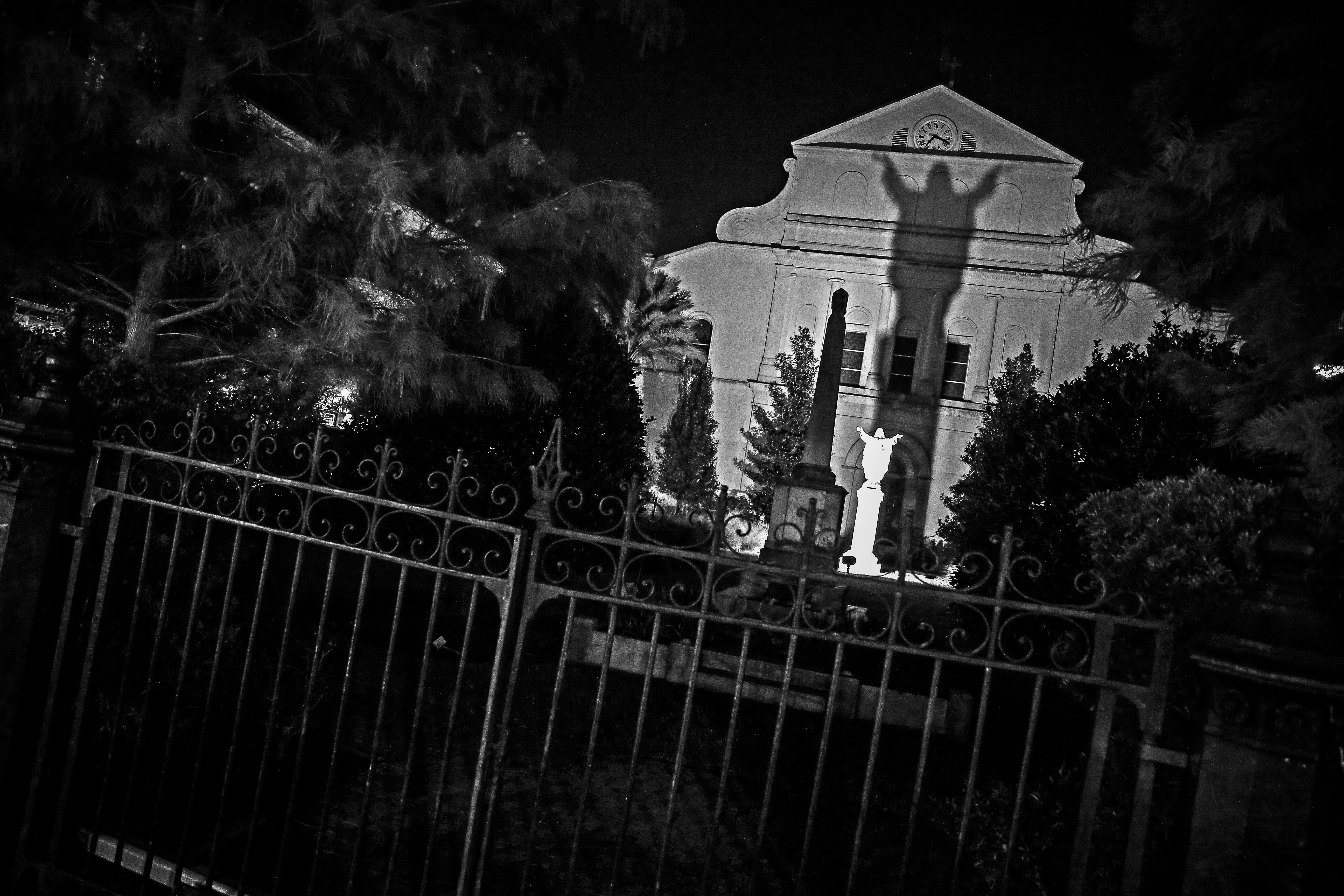
Duels to the death in the French Quarter
For a half-century beginning around 1740, countless duels of varying mortality were staged in the garden behind the grand cathedral. However, after decades of listening to the clang of colichemardes and crack of bullets, the priests and neighbors decided they’d had enough of the noise and dueling was outlawed within the city limits.
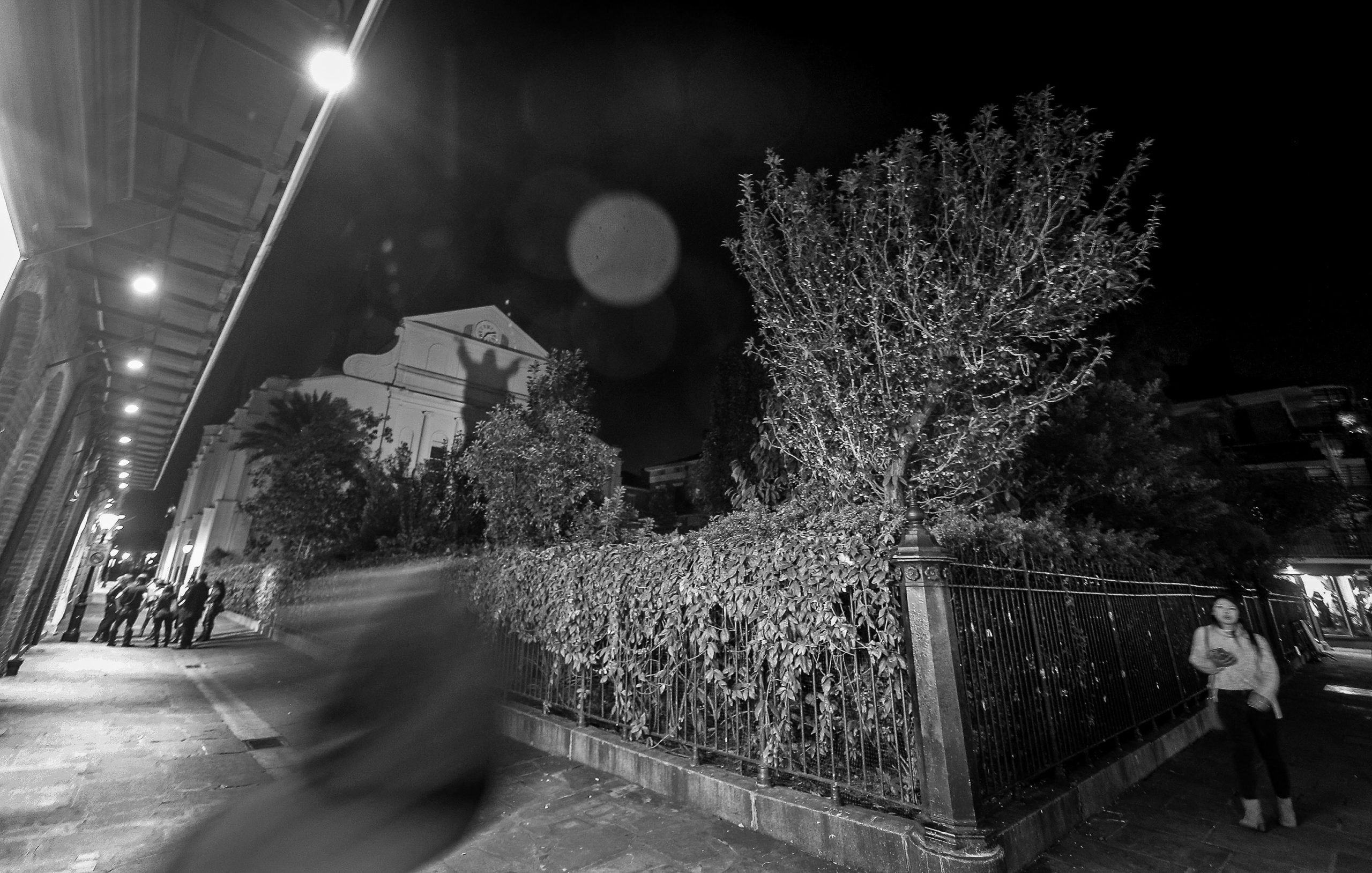
However, ghost hunters report that restless spirits of the duelists remain in the cathedral garden. On a quiet night, they say, you can feel cold breezes, hear ghostly gunfire and glimpse fleeting shadows when standing near the garden’s iron gates. One source says the corner of Royal Street and Pere Antoine Alley is a prime spot to witness these eerie events.
Duels move to Esplanade Avenue/City Park
After dueling was outlawed within the city limits, Ye Olde Thunderdome simply moved up Esplanade Avenue to a green space that is now City Park. The noble battles continued to be waged under two towering oak trees soon dubbed the Duelling Oaks. Yes, the name has an extra “L” which is vexing to a certain author’s (and editor’s) spellcheck. Hundreds of duels were waged under the oaks, so many that, looking back in 1892, the Times-Democrat wrote “Blood has been shed under the old cathedral aisles of nature. Between 1834 and 1844 scarcely a day passed without duels being fought at the Oaks. Why, it would not be strange if the very violets blossomed red of this soaked grass!”
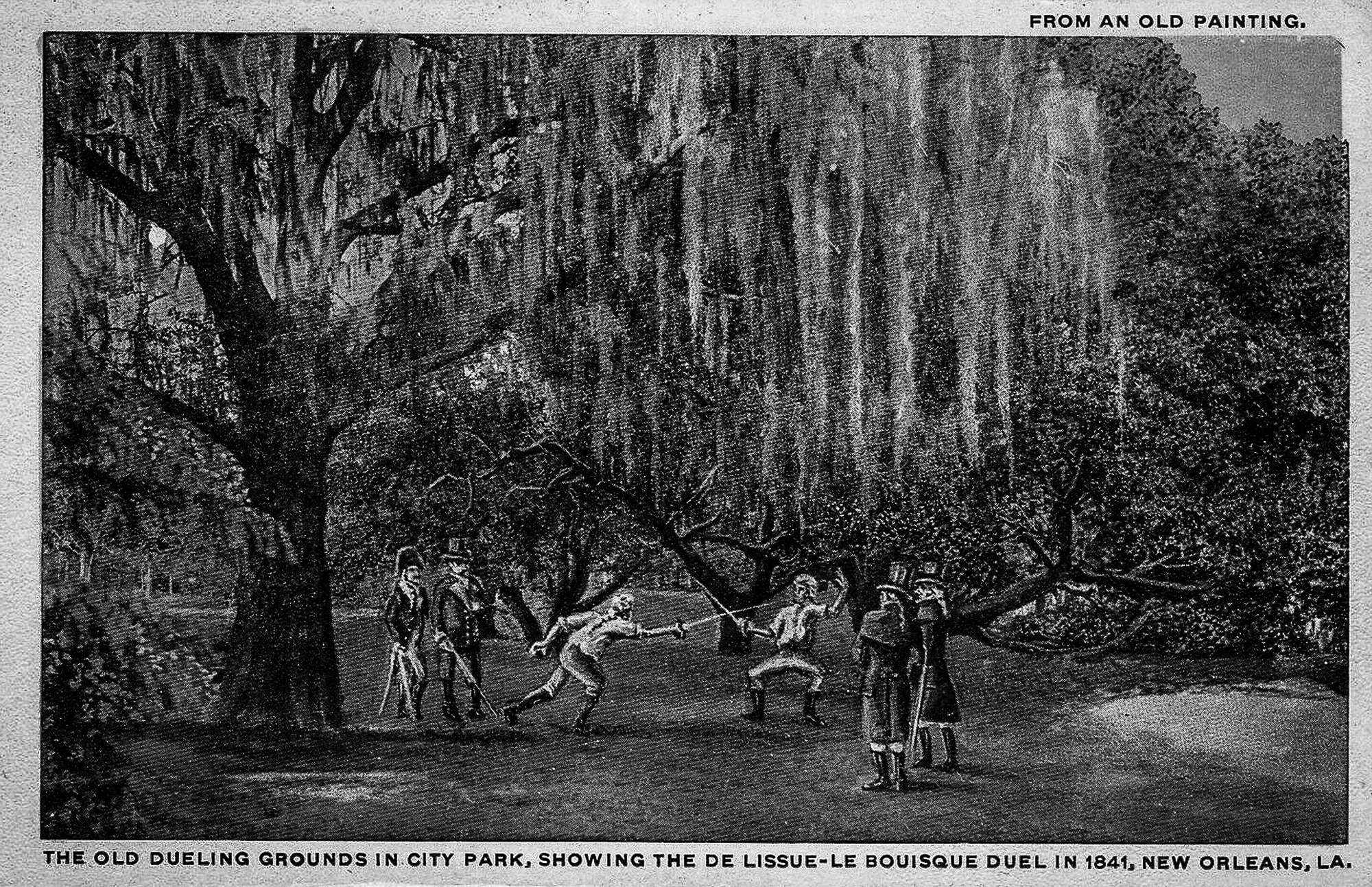
The Duelling Oaks became so popular for duels that 10 were waged on a single Sunday in 1839, probably because back then the Saints weren’t playing. The duels in City Park sometimes attracted hundreds of spectators with nothing better to do (see previous statement on Saints). One duel was the result of a man placing his sister’s chair too close to another at a dinner party. Glove met face. Honor was demanded. The mover of the chair died under the Duelling Oaks for his heinous furniture misplacement.
One of the most famous duelists of his day was Senor Don Jose “Pepe” Llulla, a master of sword and pistol who legend says fought dozens of duels and was so adept at killing that rumor was he bought St. Vincent de Paul Cemetery on Louisa Street just to bury his vanquished foes.
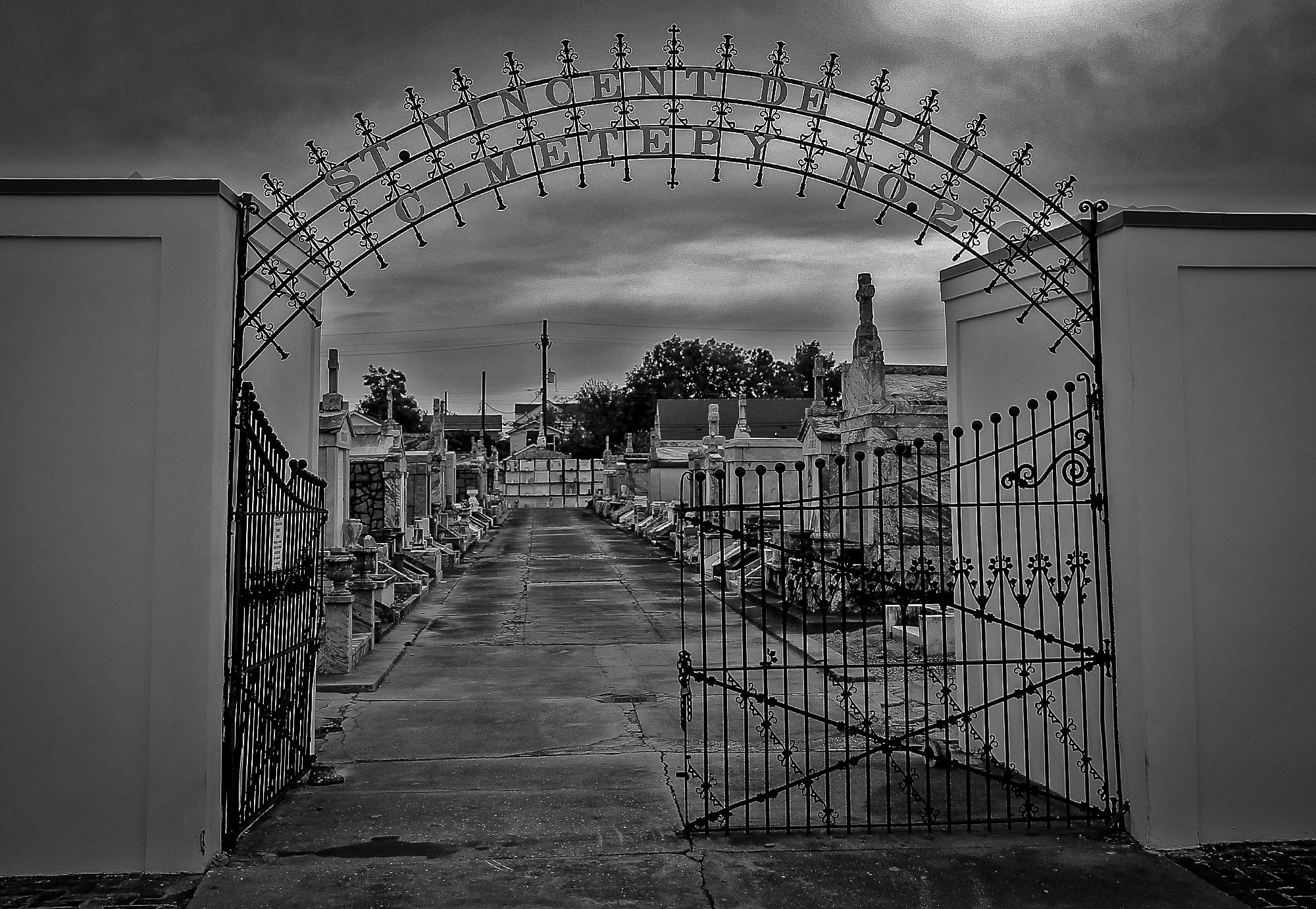
Some ghost hunters have reported that a spirit armed with a sword or cane, possibly the ghost of Llulla himself, roams cemetery #2 to this day.
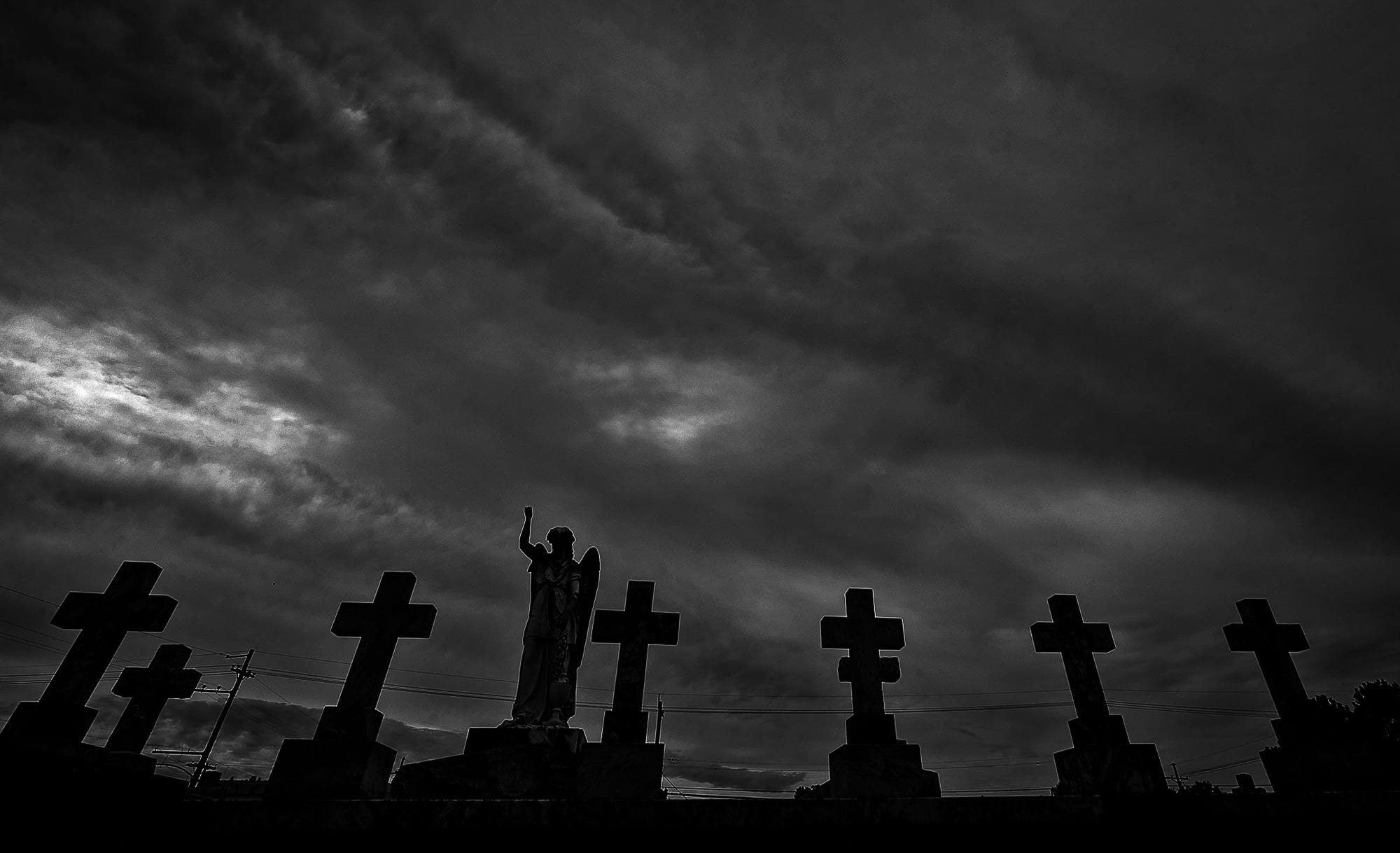
In 1855, police started breaking up the duels under the Duelling Oaks, though the conflicts secretly continued like some sort of 19th century fight club. But, by 1890, the Duelling Oaks were finally a peaceful place and angry gentlemen just sued each other instead. The two Duelling Oaks continued to face off for more than 50 years until one was finally defeated, knocked down by a hurricane in 1949, leaving the other oak tree victorious in what smart people call a “pathetic fallacy.”
The Duelling Oaks today
As with St. Anthony’s Garden and St. Vincent de Paul Cemetery, stories tell of the ghosts of duelists haunting the remaining 300-year-old Duelling Oak. The tree can be found to the left of the New Orleans Museum of Art, a peeling plaque describing the affairs of honor that took place there. (Note: Don’t confuse the Duelling Tree with the Suicide Oak on Victory Drive. Totally different scary tree.)
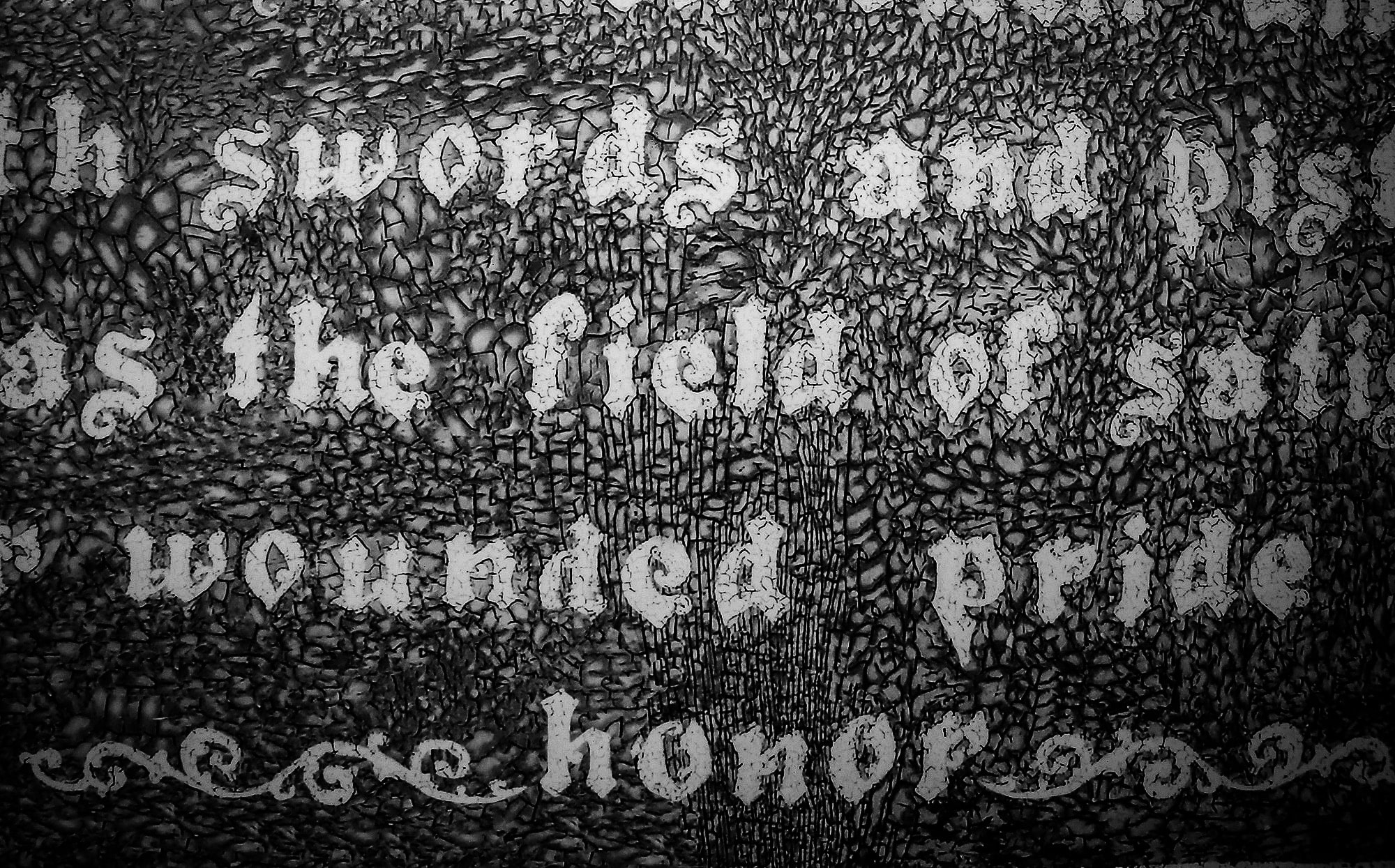
Under the Duelling Oak, visitors have reported finding places of heavy melancholy where mortally wounded victims fell. They’ve felt invisible figures of vanquished combatants brush by. Others say that glowing orbs appear on photographs taken at the tree near dawn or dusk. The image of twisted faces can be seen in the bark of the ancient tree, although it could just be the product of an overactive imagination. Or not.
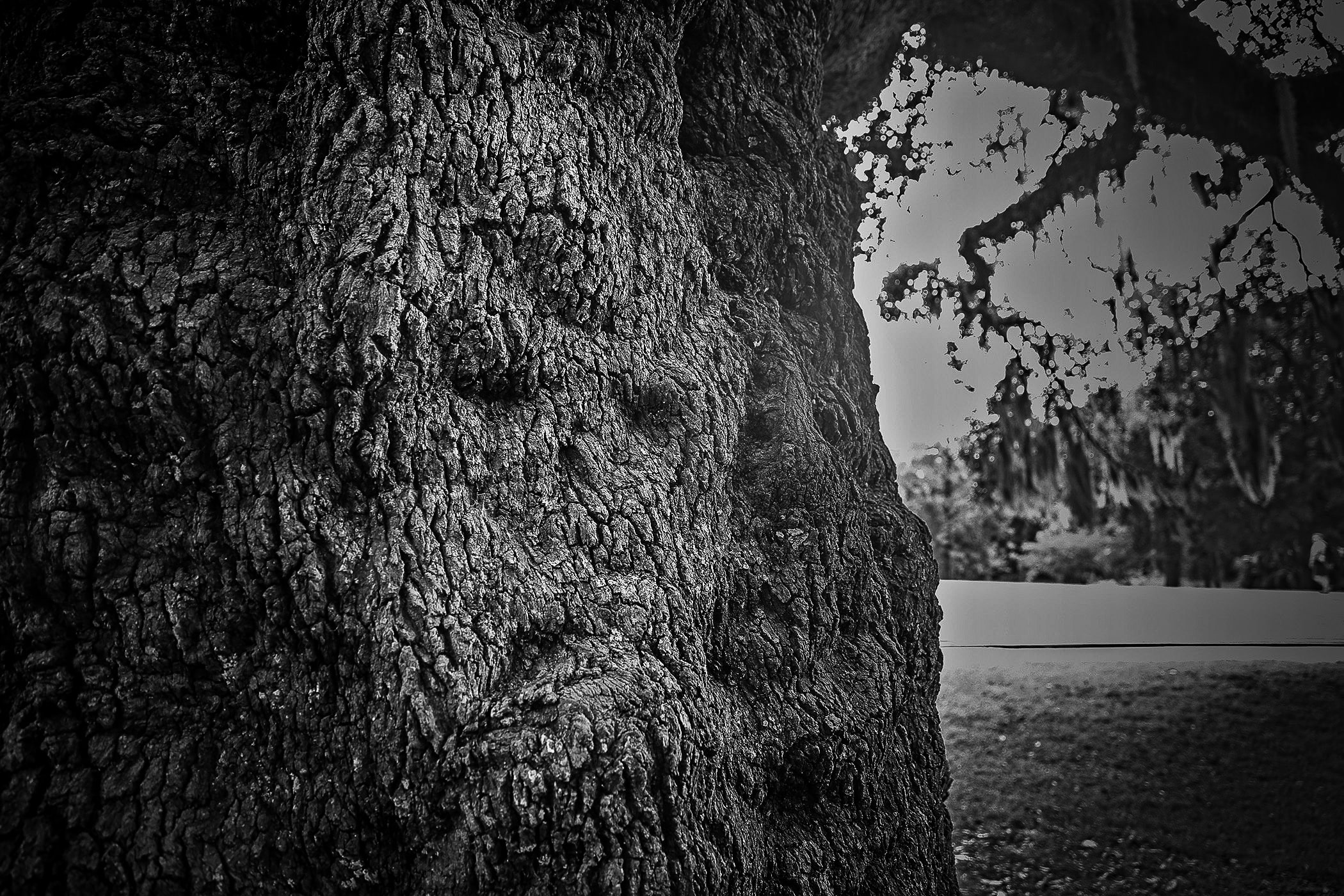
References
- Caskey, James. The Haunted History of New Orleans: Ghosts of the French Quarter. Subtext Publishing, Savannah, GA, 2013
- City Park New Orleans website. Live Oaks of City Park. https://neworleanscitypark.com/live-oaks-of-city-park (accesed October 2019)
- Dwyer, Jeff. Ghost Hunter’s Guide to New Orleans. Pelican Publishing: Gretna, LA, 2016
- M.L. Bullock’s Haunted Case Files website. (accessed October 2019)
- Pope, John. En(d) garde!: The End of the Dueling Era in New Orleans’ City Park. The Times-Picayune, JUL 28, 2017.
- The Advocate. Blake Pontchartrain: Where Exactly is the famous Dueling Oak? (Accessed October 2019)
- The Duelling Oaks website. (Accessed October 2019)
- Stuart, Bonnye. Haunted New Orleans: Southern Spirits, Garden District Ghosts, And Vampire Venues. Globe Pequot: Guilford, CT, 2012

